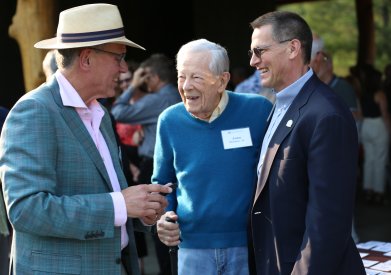A Sacred Moment Ruined
September 24, 2015
On July 28, my wife’s brother, Marcos, died from cancer at the age of 58. He died at home under hospice care and was heavily sedated over the last weeks of his life. Marcos had undergone two chemotherapy regimens and one experimental treatment. His doctor was exemplary – she provided the best treatment options yet remained realistic about outcomes, she had excellent communication skills and provided comfort care when treatments were no longer an option. When Marcos took his last breath, he was surrounded by people who loved him dearly: his wife, two sisters, one brother, his best friend and me. Hospice care was excellent – there was communication on what the dying process might bring and how best we, the family, could comfort Marcos at the end. We all felt supported by the hospice nurses’ compassion and ample technical skills that enabled them to make independent decisions coordinated with the agency physician and oncologist.
There were many tears shed over the last four days of Marcos’ life as he descended slowly into a comatose state. When Marcos breathed his last breath, we called his primary hospice nurse. She came quickly and greeted our grieving family with warmth and respect. The entire family took turns thanking the nurse for her tender loving care and exchanged hugs. It was a sacred moment. We were in an emotional turmoil and were grateful for the support from what felt like a newly acquired family member.
This sanctity vanished in an instant. As we embraced and shed tears, the hospice nurse made a request: “When the satisfaction survey comes, please give us high grades because our organization’s financial success is linked to these ratings.”
Our jaws dropped. We had just lost a member of our family. We were fragile, emotionally drained and exhausted. Her perfunctory request has and will forever taint the memory of Marcos’ death and my opinion of her. Months later, I am left wondering why this nurse, who had been so wonderful throughout, felt the need to push the patient survey at that moment? Did she not have confidence in her performance and need external confirmation? Above all, why do we have a reimbursement system that values high patient satisfaction grades over professional values and empathy?
This personal experience reinforced for me the need to build incentive systems that don’t intrude upon caring for patients or their caregivers. A sacred moment, ruined.

Daniel B. Wolfson
EVP and COO, ABIM Foundation


